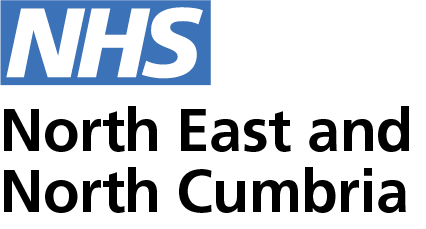North East Lights Up for World AIDS Day
World AIDS Day on 1 December supports people living with HIV and remembers those who have sadly lost their lives to the infection.
People from across the North East and North Cumbria are being reminded to “get tested to get treated” as new figures show an increase of HIV cases in the region.
In 2023, 148 people in the North East were diagnosed with HIV an increase of 42 new cases on the previous year. Recent figures also show that for the first time since pre-2014 over a third of new cases (35%) were diagnosed in women. For all new cases, the most probable route of transmission was higher in sex between men and women (49%) than sex between men (40%).
Around 2,340 people in the North East currently live with HIV. This reflects a rise on the previous year (2022) of nearly 200 people.
The good news is that thanks to advancements in treatment, many people with HIV now have a normal life expectancy, - nearly half the people in the North East living with HIV are aged 50 years and older.
Early diagnosis is critical, and this is why we encourage people to get tested. The sooner HIV is diagnosed, the better the outcome and the lower the risk of passing it on to others. A person who is on effective treatment with an undetectable level of virus in their blood cannot pass HIV on to others.
The Association of Directors of Public Health North East’s lead for Sexual Health and HIV and Director of Public Health at Sunderland City Council, Gerry Taylor, said:
“HIV is a serious infection and, if left untreated, it is life threatening, however advancements in treatment now mean the sooner HIV is diagnosed and treated, the better the treatment outcome and the lower the risk of passing it on to others.
“Taking a HIV test can either put your mind at rest or means you can seek treatment as early as possible. In short, the sooner you are tested, the sooner you can be treated.
“Sadly nearly a quarter of people were diagnosed when the infection was at a later stage and we encourage anyone at risk of HIV, including those who have had sex with a new or casual partner, to get tested as soon as possible.
“Those diagnosed early can have a life expectancy matching that of people who are HIV free.”
In November 2023, the North East and North Cumbria Regional HIV Steering Group was established to provide system-wide support and accountability to ensure progress towards ending HIV transmission and HIV-related deaths in the region.
Dr Catherine Monaghan, medical director, North East and North Cumbria Integrated Care Board (ICB), said:
“Across the North East and North Cumbria we are working with partners to improve awareness of HIV and reduce stigma and barriers to testing.
“As the latest data shows anyone can be affected by HIV, and it is imperative that we support not only those diagnosed with the infection but also their sexual partners.
“By offering rapid testing and support we can ensure that people are diagnosed early and have access to the care and support they need.
“We continue to provide support to people living with HIV to ensure and empower them to manage their condition and improve their quality of life.”
World AIDS Day was established in 1988 and is a day to show strength and solidarity against HIV stigma and to remember lives lost. Across the North East a number of events are planned to the day.
Julieanne Mitchell, Treasurer of Eyes Open, Living Well with HIV said:
“While World AIDS day is the 1st of December, HIV is something we all need to consider throughout the year. It is important for people to know their status in order to receive the care and support they need. Eyes Open HIV continuously work hard to raise awareness of HIV and reduce associated stigma, promoting the message that HIV doesn’t discriminate.”
Events planned to mark the occasion include key buildings illuminated in red, HIV awareness sessions, free rapid HIV testing and the launch of a two-week art exhibition at Republic Gallery in Blyth which will include a print of work created by Sir Henry Hate, ‘Monument One’.
Anyone, regardless of gender, having sex without condoms with new or casual partners should also have an HIV test, and STI screen regularly. Gay, bisexual and men who have sex with men should have an HIV test and STI screen at least annually, or every three months if they are having sex without condoms with new or casual partners.
You can get tested for HIV in a number of places, including your GP practice and sexual health clinics. The HIV test is free. You can find your local HIV testing service on NHS Choices.
